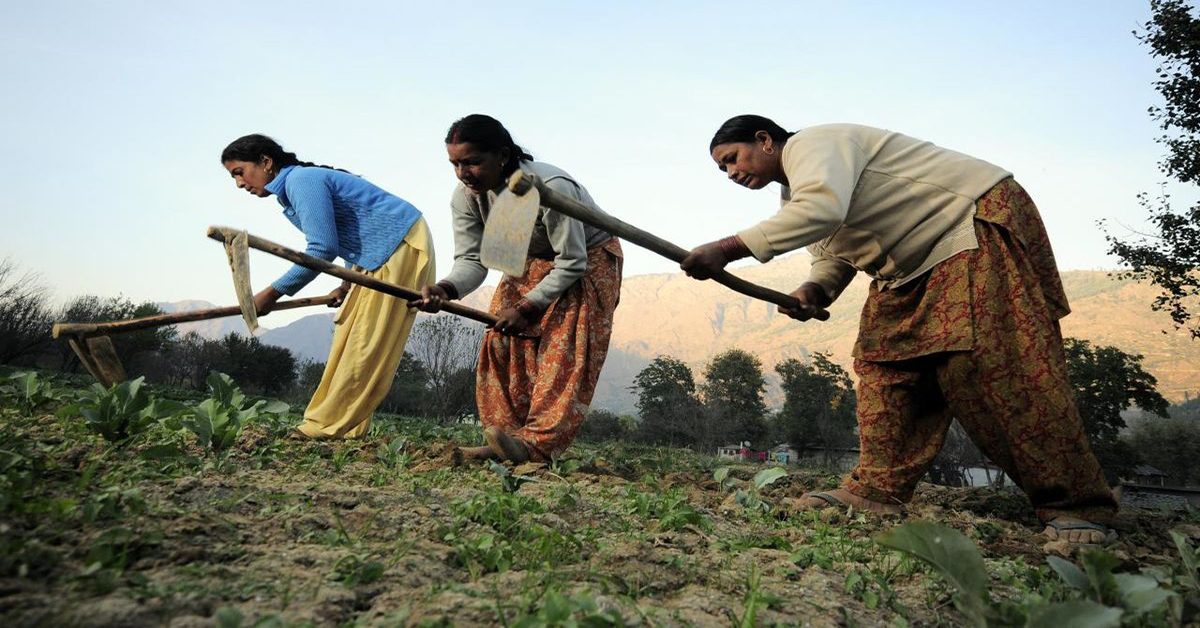


A recent data analysis by the Agriculture Ministry has shed light on the widening gap between the terms of trade (ToT) for farmers and agricultural labourers in India. While crop prices have increased by 111.2% over the past two decades, the cost of inputs for farming has risen by 198.1%, resulting in a decline in the ToT for farmers. This has led to a situation where agricultural labourers, who receive only wages and not the profits from farming, are faring better than the farmers themselves. The cost squeeze for farmers is mainly due to rising input costs, and they are unable to pass these on in the form of higher prices for their produce.
Terms of Trade: A Broken Promise for Indian Farmers
Introduction The agriculture sector is the backbone of the Indian economy, providing livelihood to over 60% of the population. However, recent trends reveal a widening gap between the terms of trade (ToT) for farmers and agricultural labourers. This disparity has raised concerns about the sustainability of the agriculture sector and the well-being of its participants.
Terms of Trade Disparity ToT measures the ratio of prices received by farmers for their produce to the prices they pay for inputs such as fertilizers, seeds, and machinery. A recent analysis by the Agriculture Ministry shows that over the past two decades, crop prices have increased by 111.2%. However, the cost of inputs has skyrocketed by 198.1%, resulting in a decline in ToT for farmers.
This disparity is primarily driven by rising input costs, particularly fertilizers, which have increased by 282.4% since 2000. The inability of farmers to pass on these increased costs to consumers in the form of higher prices for their produce has led to a cost squeeze.
Impact on Farmers The declining ToT has had a devastating impact on farmers' incomes and livelihoods. Many are forced to sell their produce below cost or take on mounting debts to cover their expenses. The result has been a decline in agricultural investment and a shift towards less profitable crops.
Agricultural Labourers: A Relative Advantage In contrast to farmers, agricultural labourers have witnessed an improvement in their ToT. This is because they receive wages, which are linked to the cost of living, and do not directly bear the burden of input costs. As a result, their purchasing power has increased relative to that of farmers.
Policy Implications The widening ToT gap demands immediate attention from policymakers. Measures are needed to address the rising input costs, such as promoting fertilizer subsidies, providing credit at affordable interest rates, and encouraging the use of innovative agricultural practices.
Additionally, initiatives aimed at improving farmers' market access, reducing post-harvest losses, and increasing value addition can help them realize better prices for their produce.
FAQs
1. What is the reason behind the rising input costs in agriculture? A. Factors such as increasing demand for fertilizers, global supply chain disruptions, and rising energy prices have contributed to the surge in input costs.
2. How has the ToT disparity affected farmers' livelihoods? A. The declining ToT has led to lower incomes, increased debt, and a shift away from profitable crops.
3. What are the benefits of improving market access for farmers? A. Enhanced market access provides farmers with more options to sell their produce, reduces dependence on intermediaries, and potentially leads to higher prices.
4. How can value addition improve farmers' earnings? A. Value addition involves processing or transforming raw agricultural products into more valuable forms, such as packaged foods or processed goods. This process can increase farmers' profits and reduce post-harvest losses.
5. What role can technology play in addressing the ToT gap? A. Technology can enhance farm productivity, reduce input costs, improve market access, and provide farmers with real-time information on crop prices and market trends.

The Social Security Administration recently released updates for 2026, including a potential 2.7% increase to benefits. However, the official announcement of the cost-of-living adjustment (COLA) could be delayed due to the government shutdown. While an increased COLA is positive for beneficiaries, some argue that it still may not keep up with the rising cost of living. Additionally, beneficiaries who currently receive physical paper checks will need to make arrangements for direct deposit or a Direct Express card to continue receiving their benefits.

The Indian government has given its approval for the formation of the 8th Central Pay Commission, which will be tasked with assessing and making recommendations around pay, benefits, and working conditions for over 1.2 crore central government employees and pensioners. The Commission, which will have a chairperson, a part-time member, and a member-secretary, will have 18 months to complete its work and will also look at emolument structures and conditions in the private sector and CPSUs. The recommendations are expected to be implemented from January 1, 2026.

Prime Minister Narendra Modi launched the Gyan Bharatam Portal, dedicated to preserving and promoting India’s vast and unique manuscript heritage. Speaking at the Gyan Bharatam International Conference, PM Modi emphasized the importance of preserving India’s knowledge legacy and adapting to changing times. He also highlighted how the ancient manuscripts reflect India’s diverse cultural heritage and contribute to humanity’s progress in various fields.

The Bharat International Rice Conference (BIRC) 2025, organized in New Delhi, has gathered delegates from over 80 nations, aiming to boost India's rice export share from 40% to 60%. IREF National President Prem Garg highlighted the need for increased export to benefit Indian farmers and declared the rice industry to be self-sufficient. The event, with participation from farmers, diplomats, and exporters, also emphasizes on banning pesticides and government support with ports and logistics to further boost the industry.

Prime Minister Narendra Modi's announcement, coinciding with the 150th birth anniversary of Sardar Vallabhbhai Patel, to showcase only indigenous Indian dog breeds at the upcoming National Unity Day Parade highlights the country's reliance on self-sustained K9 forces. The Ekta Diwas Samaroh celebrated India's diversity and unity, while PM Modi emphasized the significant role of indigenous dog breeds in Indian military and cultural traditions. With the current population of 150 Indian breeds deployed in strategic areas, the initiative, which gained momentum after PM Modi's visit to the BSF National Dog Training Centre in 2018, showcases the agility, stamina, and adaptability of these breeds in diverse terrains and climates.

A young Australian expressed their difficulty in managing their finances and confessed to spending a whopping $994 on eating out in a month. Seeking advice from Reddit users, they revealed a pricey morning routine that contributed to their high expenses. Despite also spending on family meals, the important takeaway is that they acknowledged the need for budgeting and were open to learning from others' financial wisdom.

Nvidia, the Silicon Valley titan, has broken yet another market record by becoming the first company to reach a staggering $5 trillion valuation. The remarkable achievement highlights the profound impact of the company's AI chips in driving the ongoing AI revolution. However, concerns have been raised about inflated tech valuations, with the IMF warning of a possible "AI bubble." As Nvidia continues to expand globally and diversify its offerings, it remains to be seen if it can sustain its unprecedented growth.

The Federal Reserve announced a quarter point rate cut, bringing the benchmark interest rate down to a range of 3.75% to 4%. While some economists predict another cut in December, Federal Reserve Chair Jerome Powell stated that a third consecutive reduction is not guaranteed. The decision was made amid the ongoing government shutdown, causing policymakers to rely on private sector indicators for their decision. This move signals the Fed's greater concern about a cooling job market than lingering inflation. With 10 out of 12 members voting in favor of the action, the outcome of the meeting showcased deep division.

Father Muller Charitable Institutions, led by director Fr Faustine Lucas Lobo, has taken a big step towards progress and excellence by inaugurating and blessing four modern classrooms for the students of Father Muller College of Physiotherapy and Father Muller College of Allied Health Sciences. The ceremony, attended by management committee members, faculty, and staff, also saw the presence of respected individuals like Dr Michael Santhumayor and Fr George Jeevan Sequeira. These new additions are a testament to FMCI's commitment to providing top-quality education to its students.

The US Federal Reserve made the decision to reduce its key interest rates for the second time in a row, bringing it down to 3.75%-4.00%. The rate cut was approved by a 10-2 majority vote, with two dissenters who wanted a steeper cut or no cut at all. The Fed also announced that it will stop the reduction of its asset holdings from December 1, but did not provide any indication of its plans for the next meeting in December.